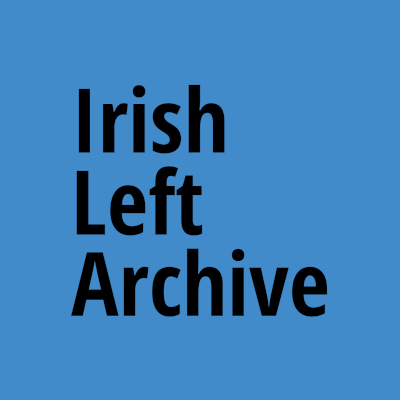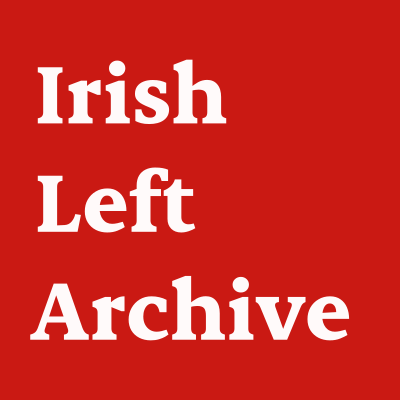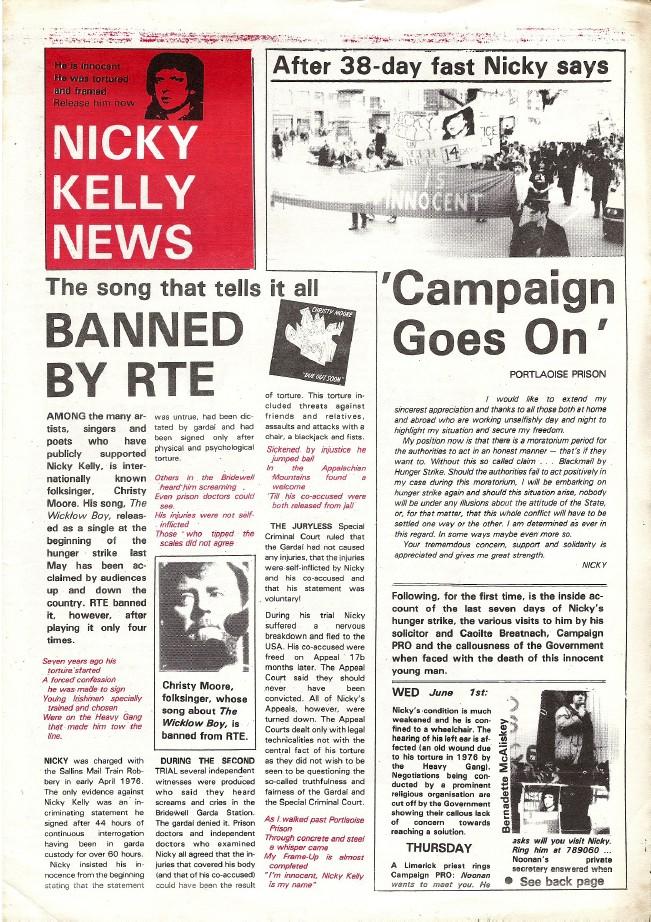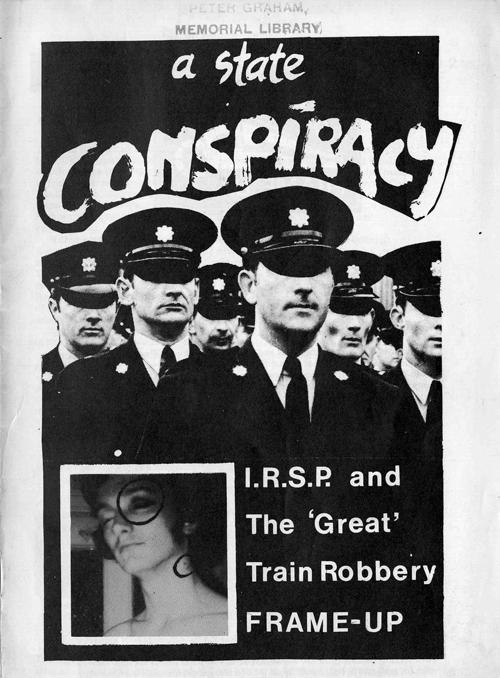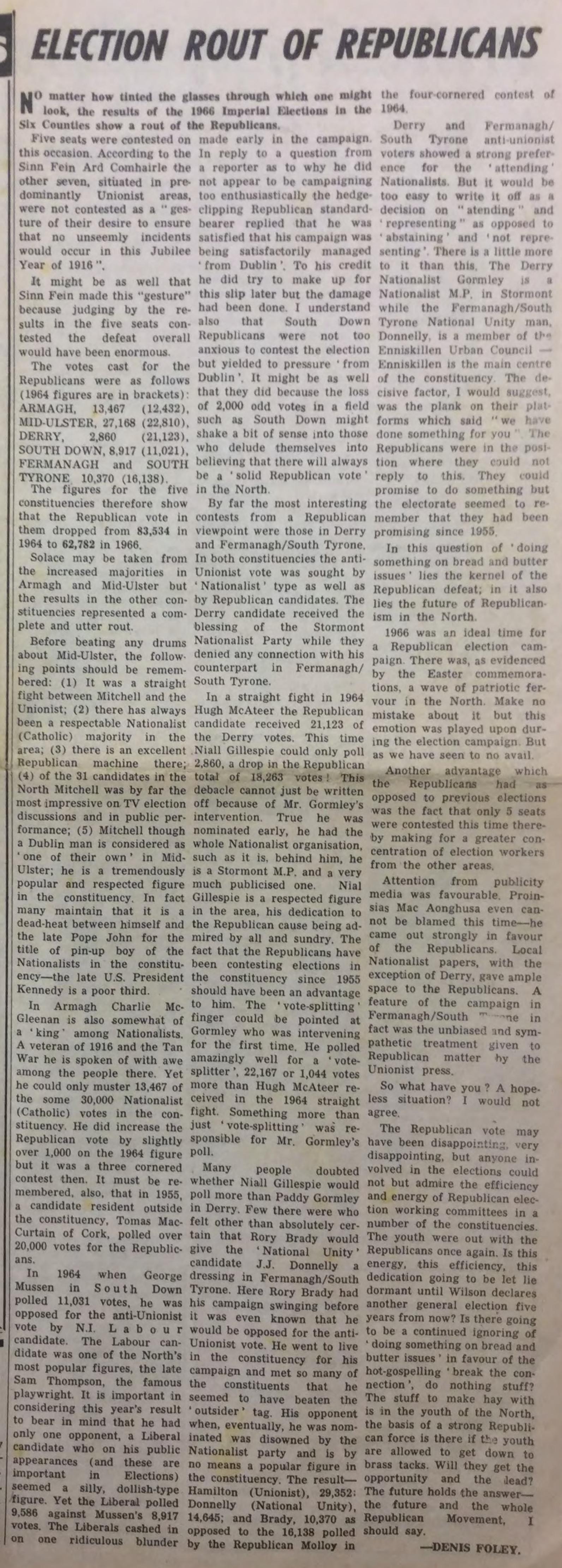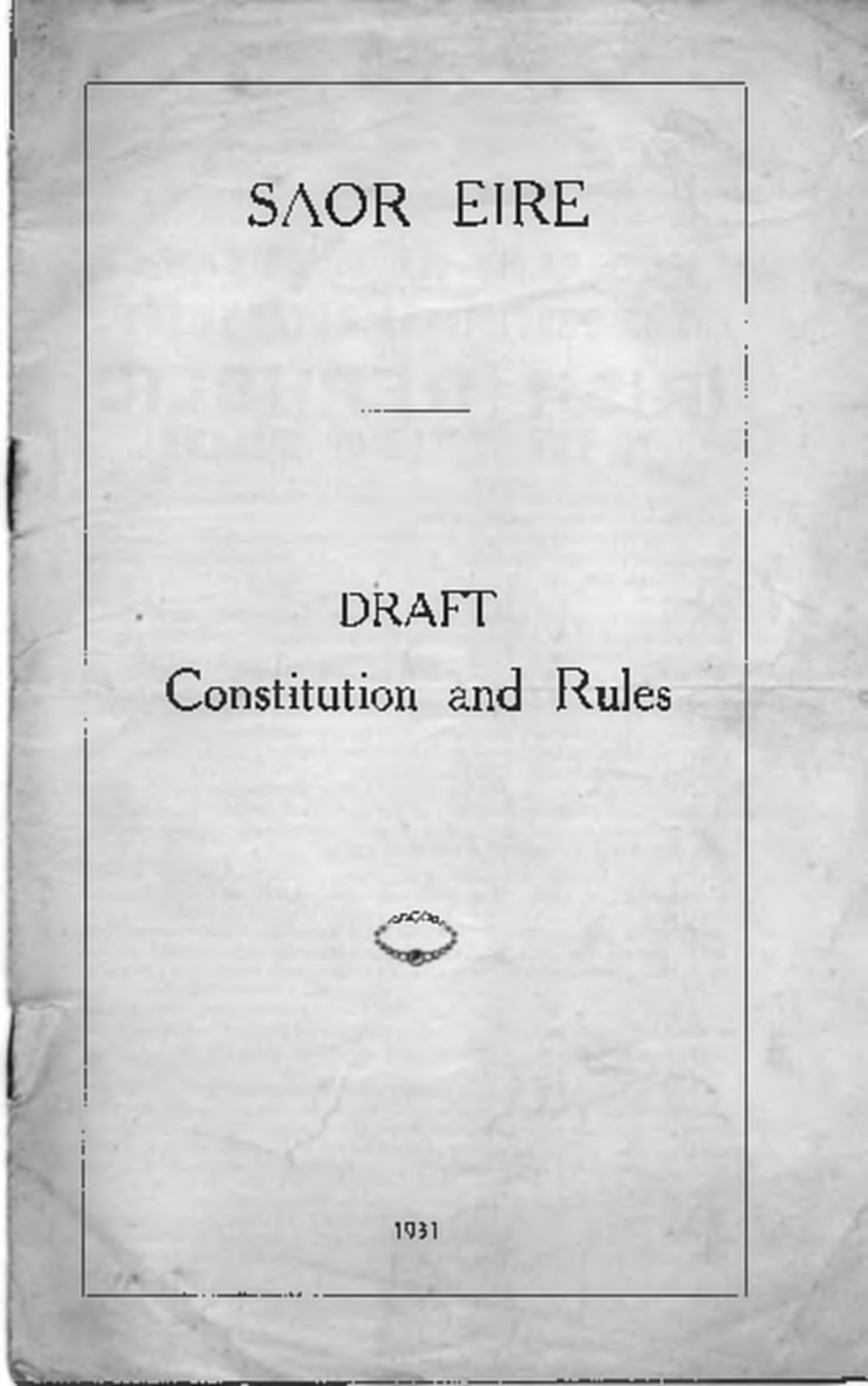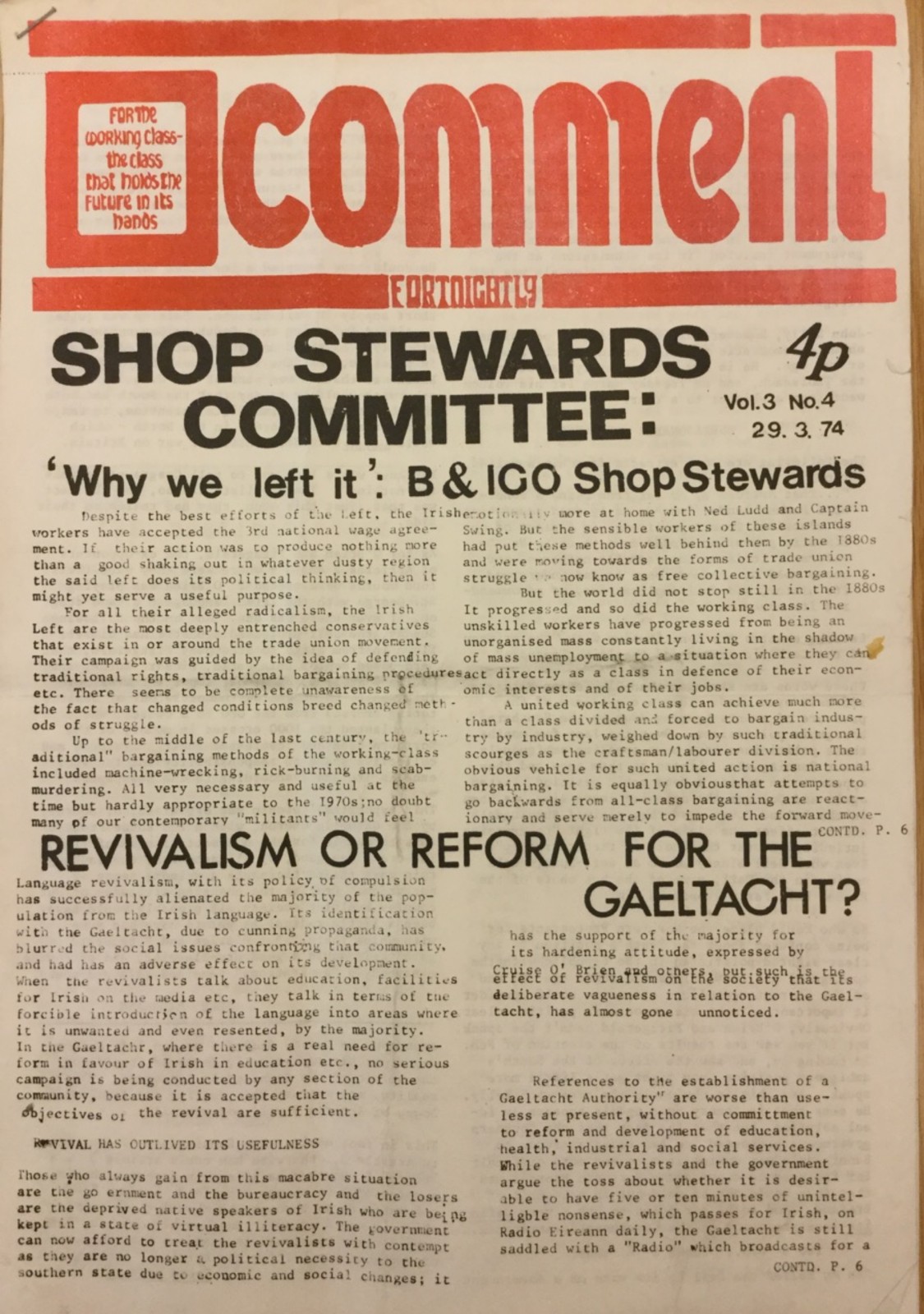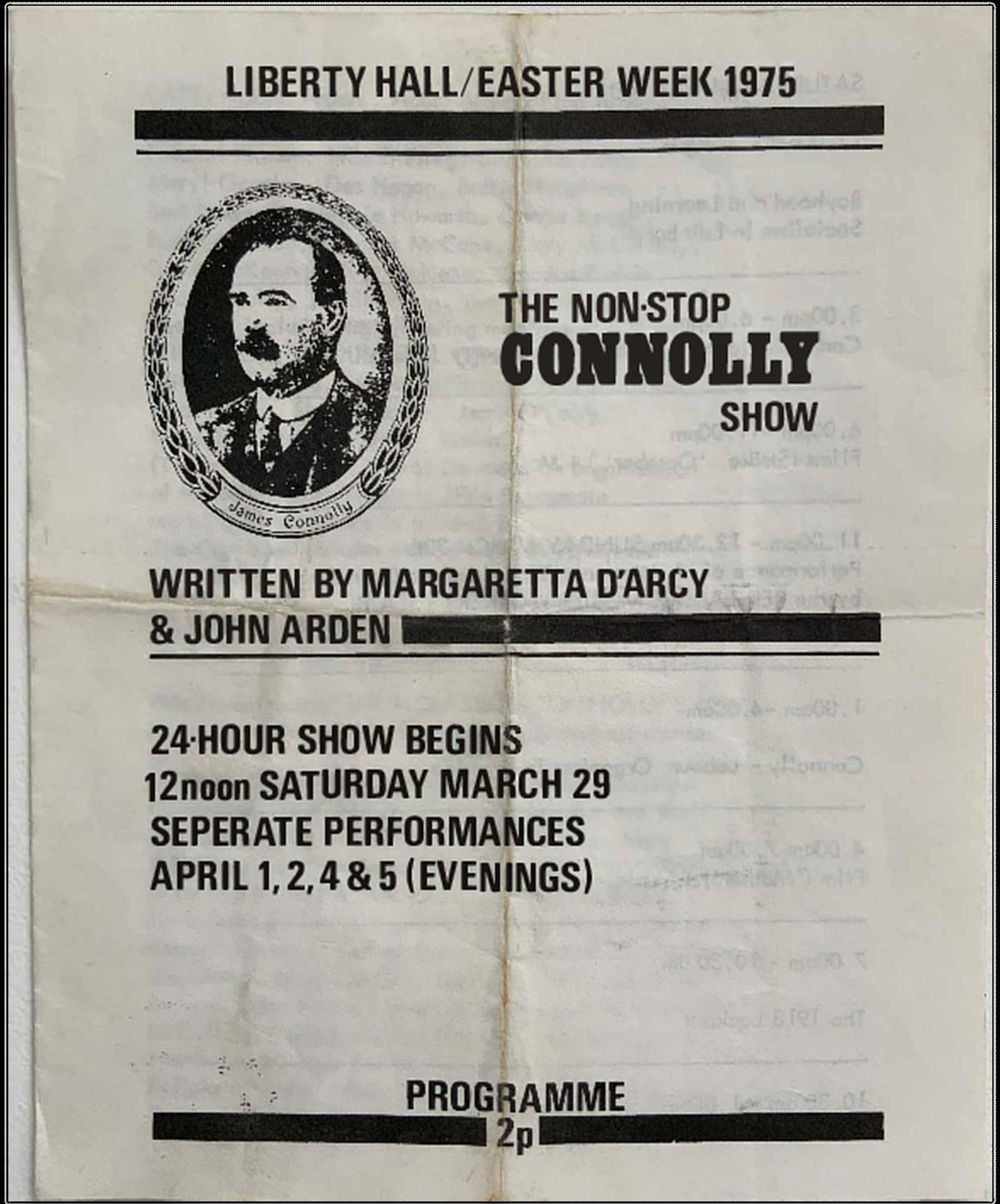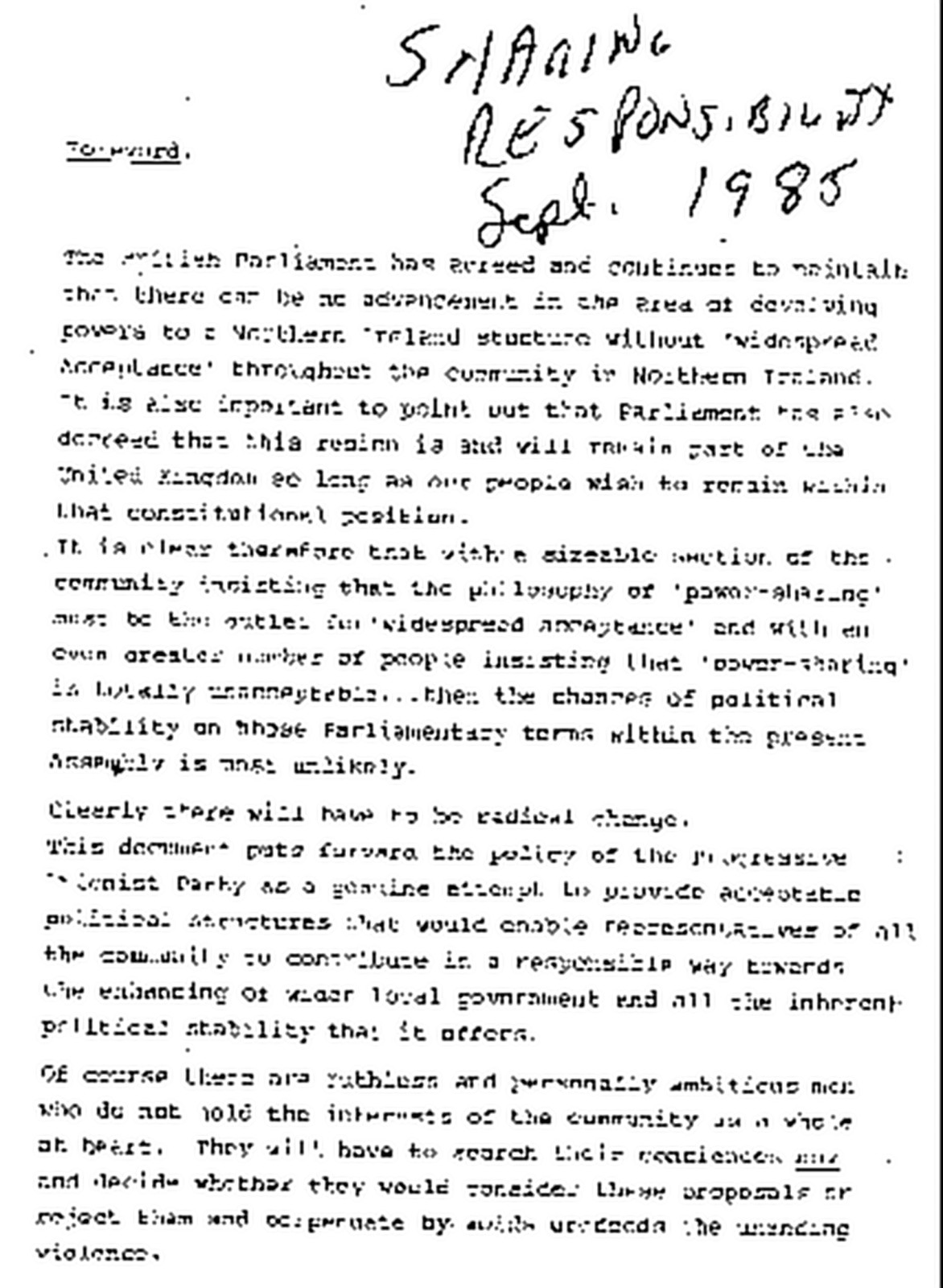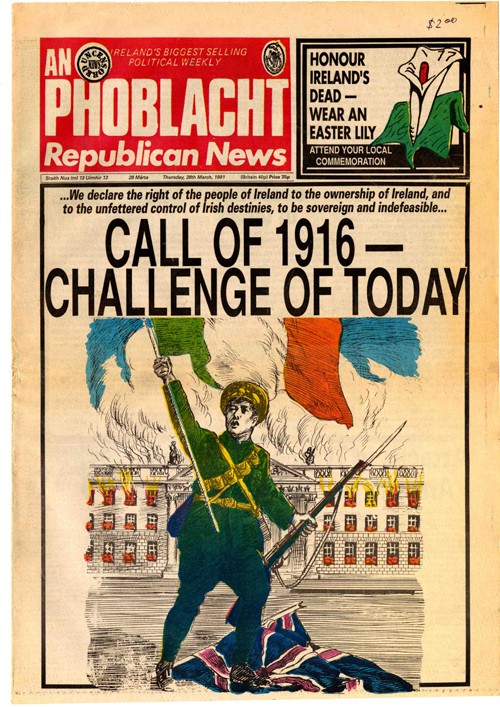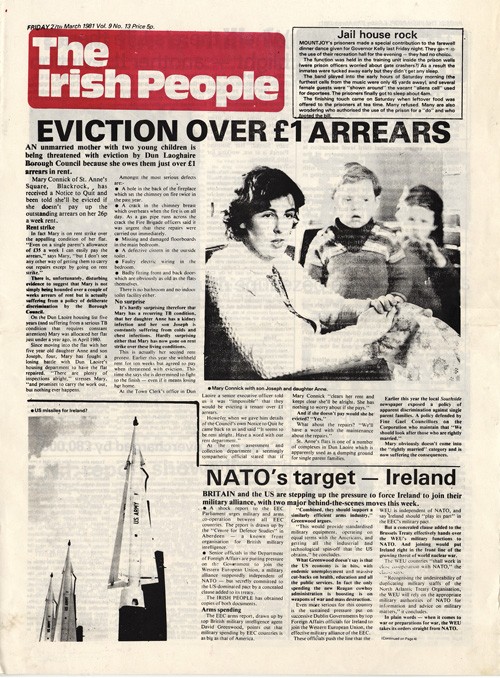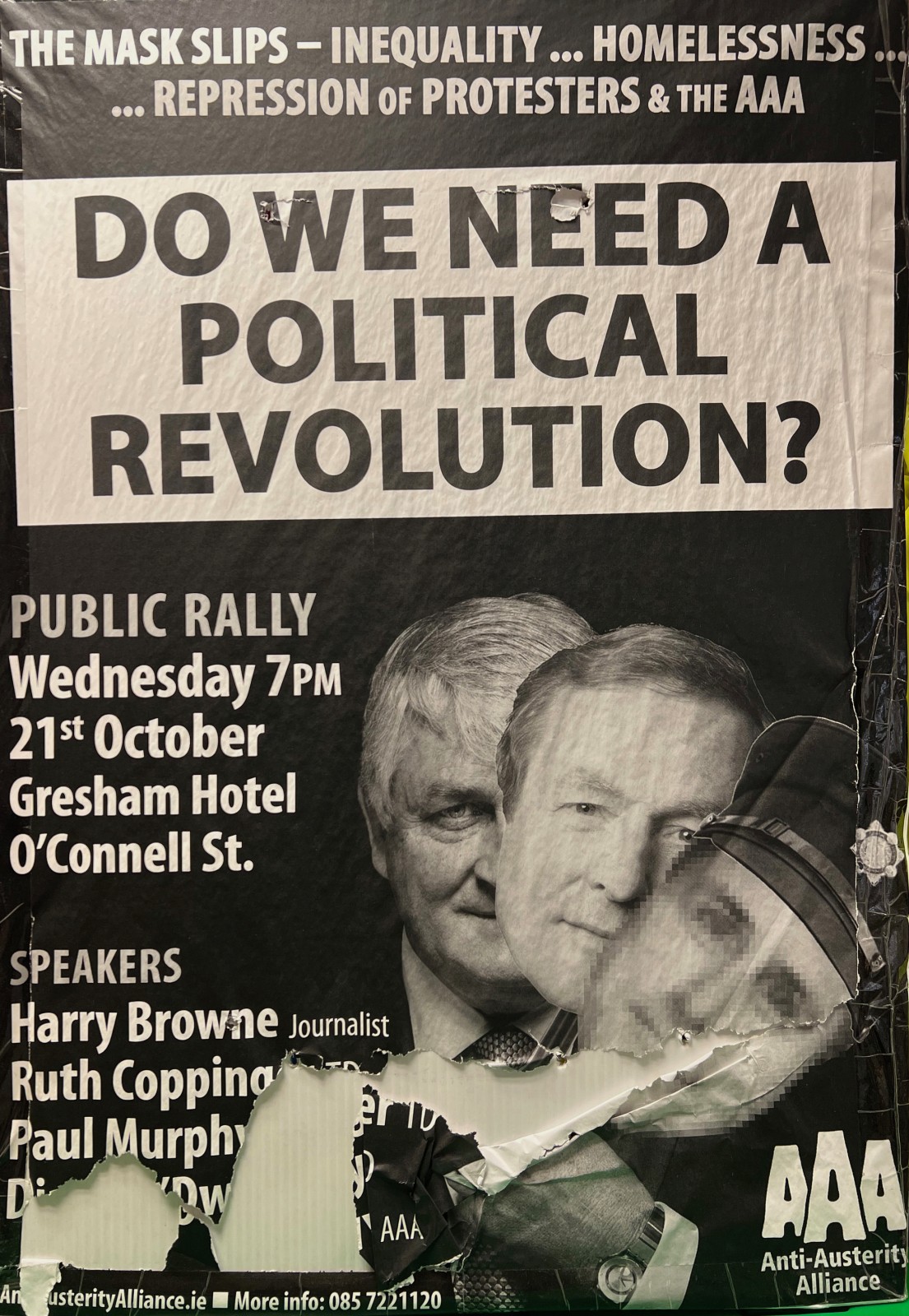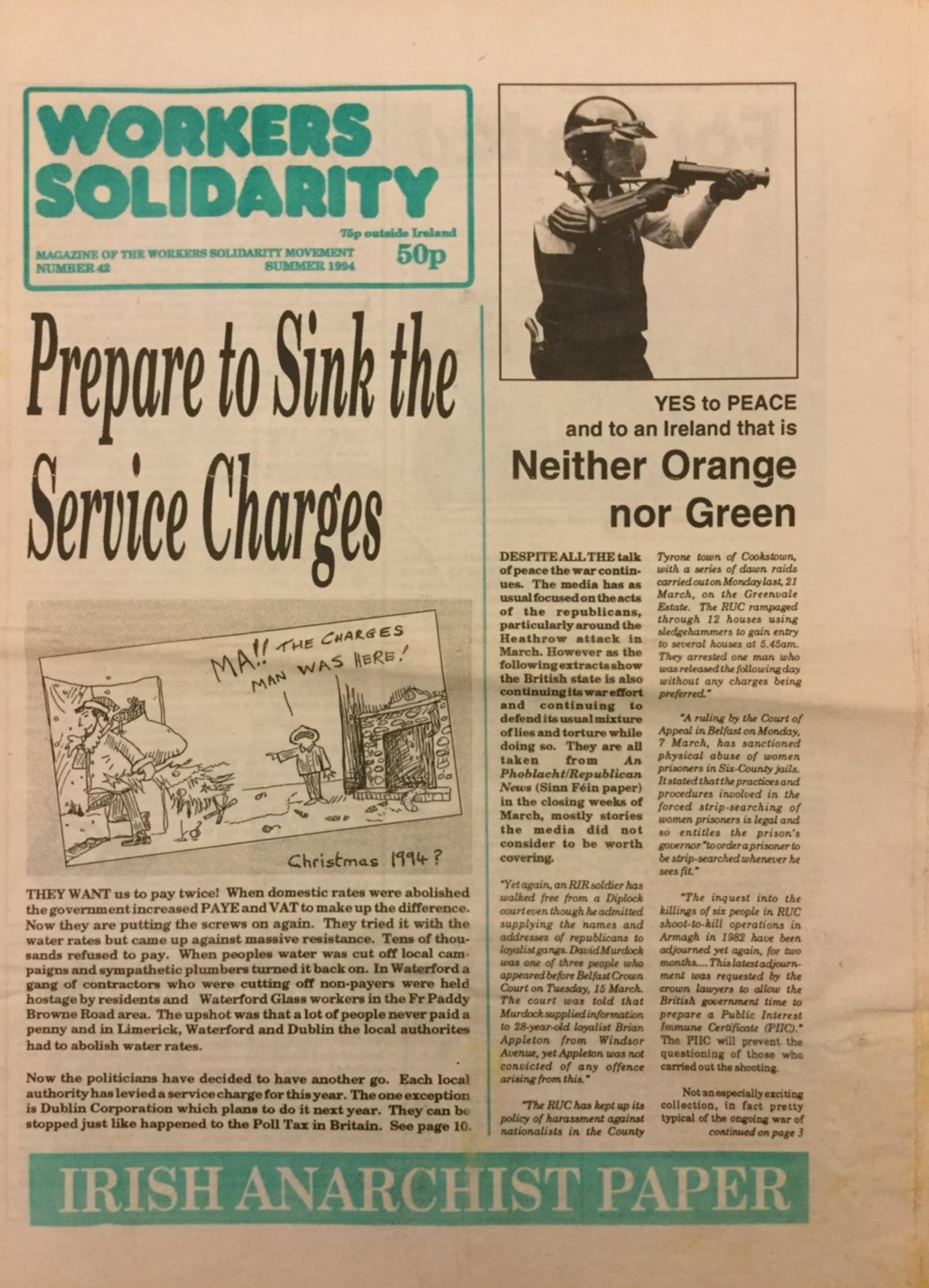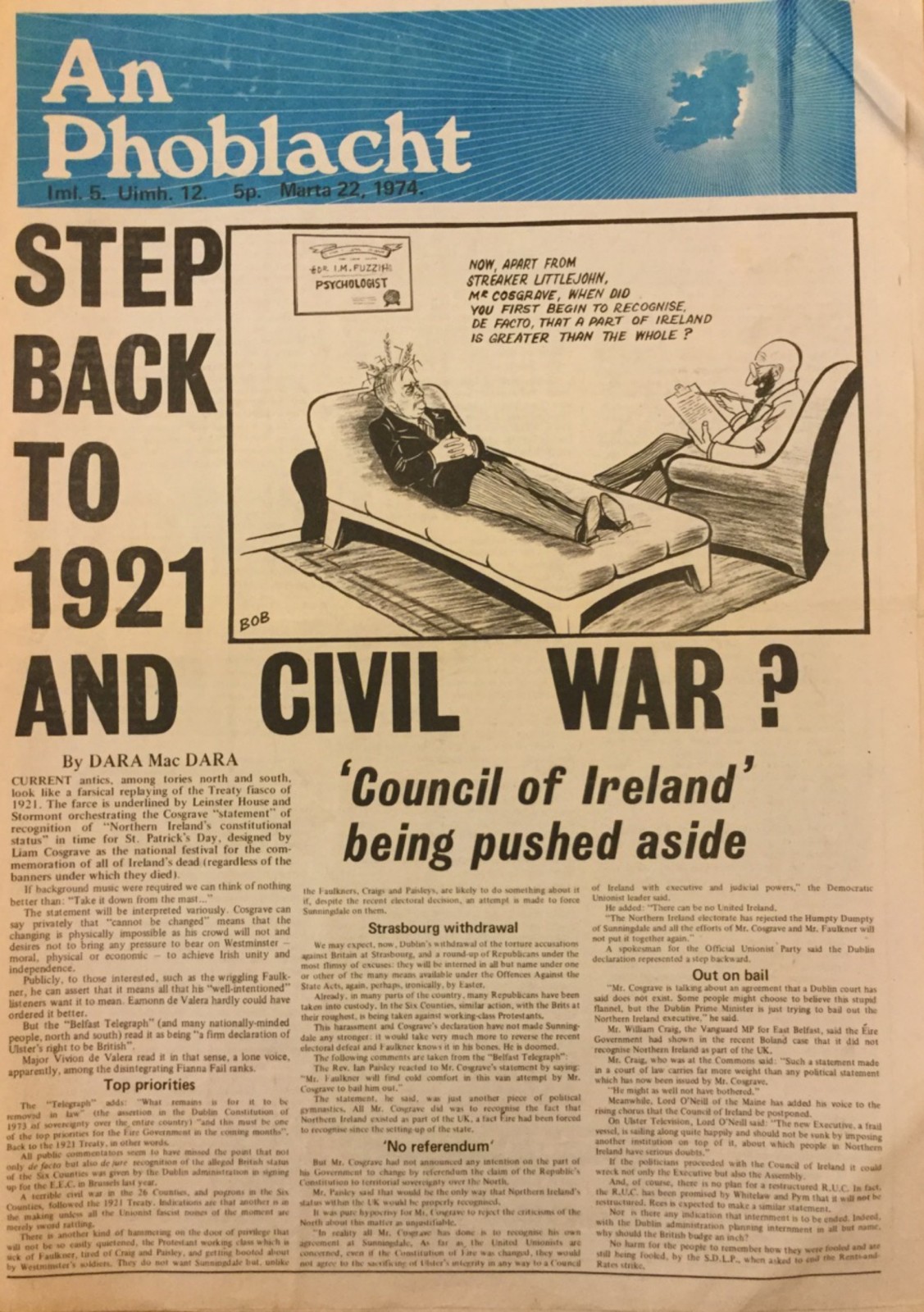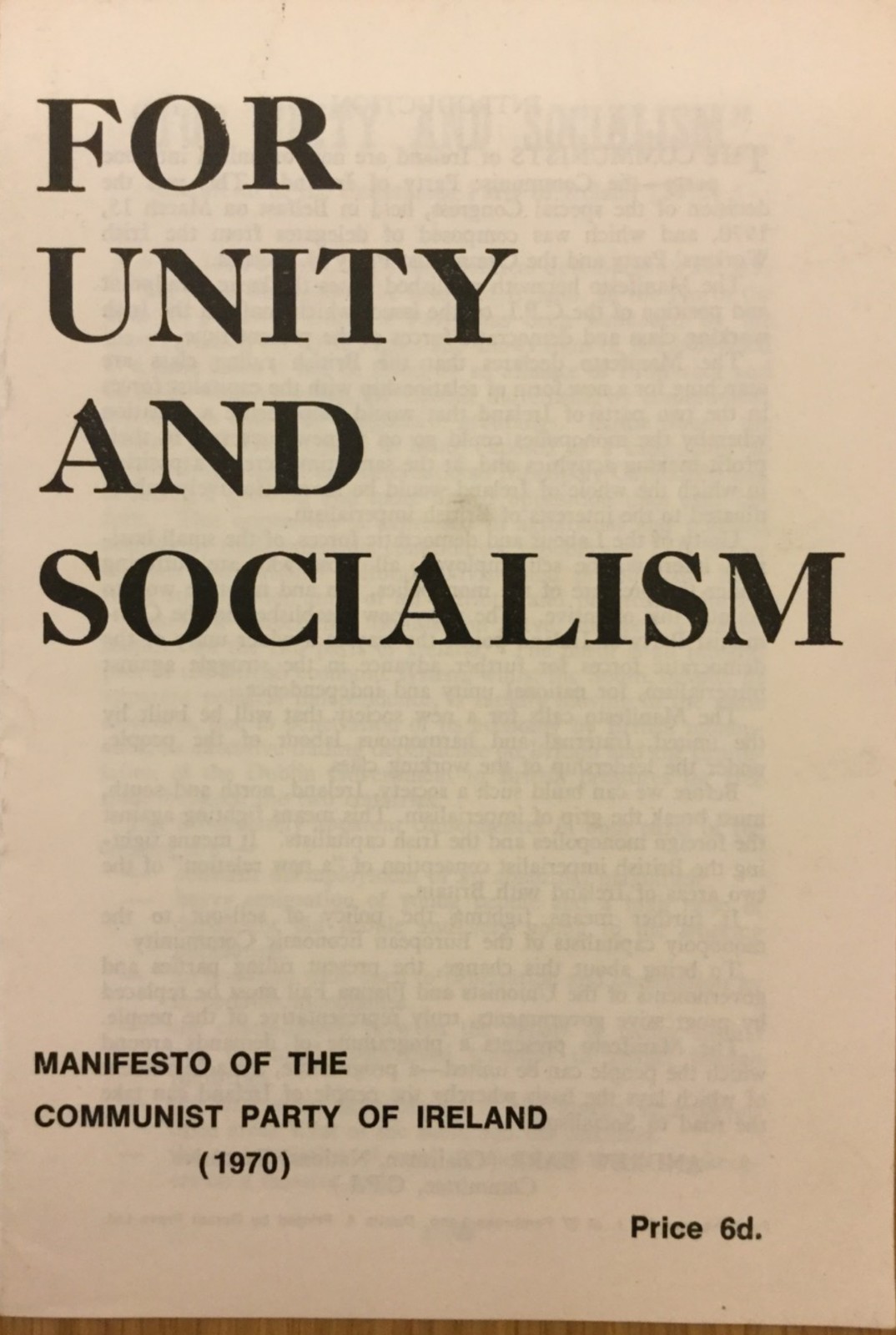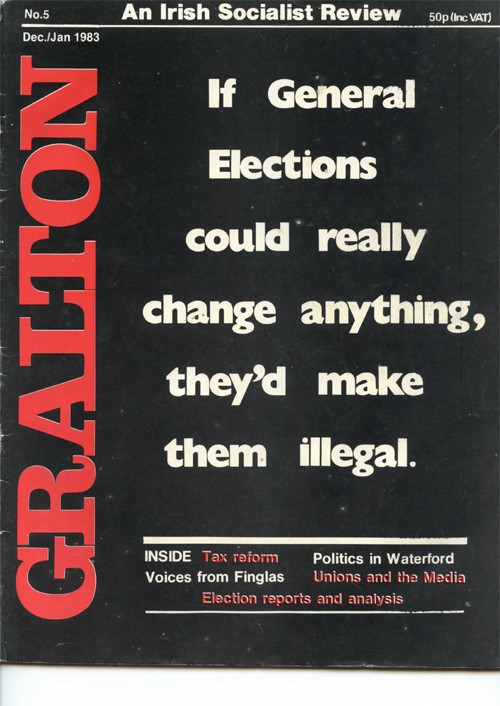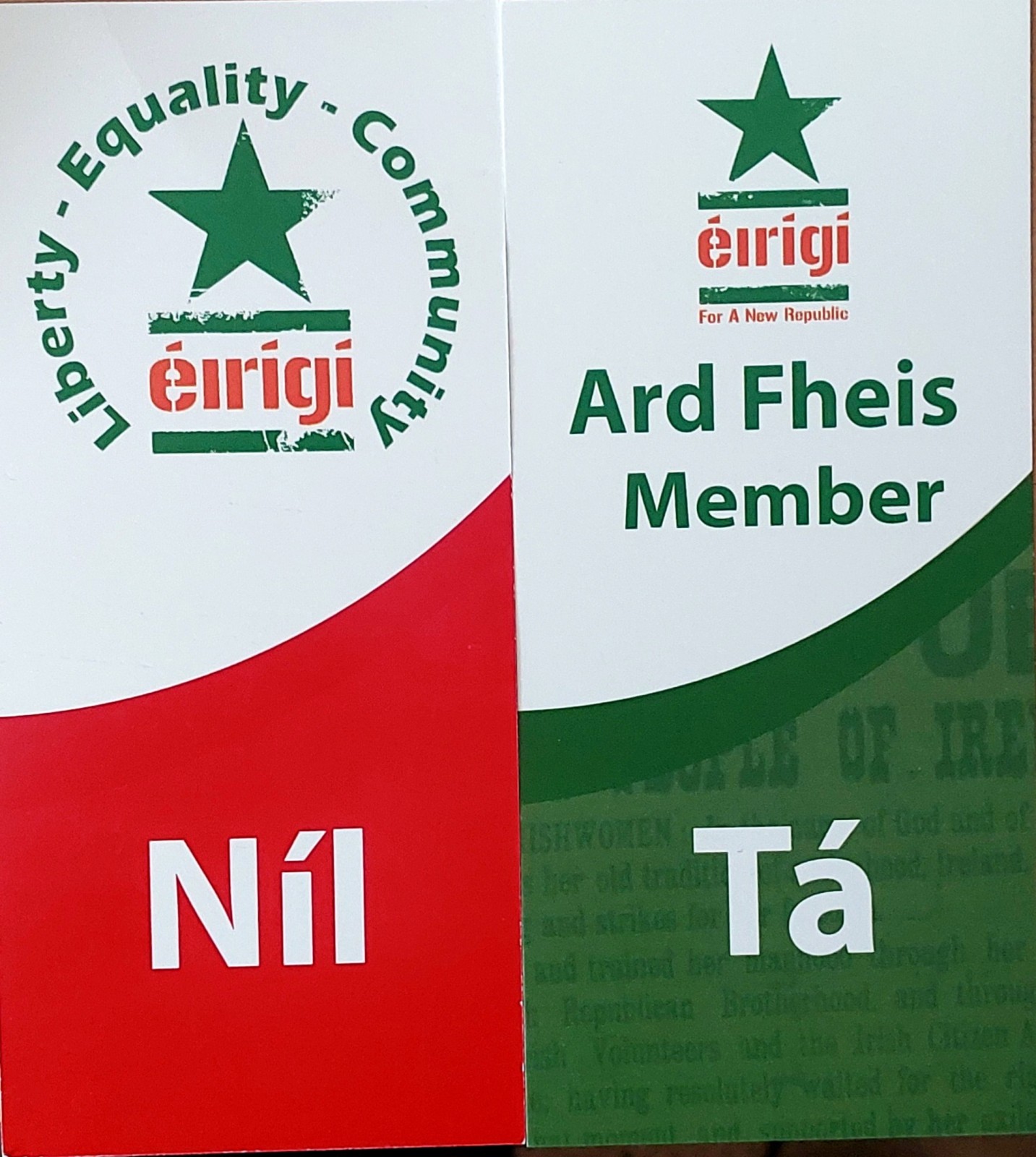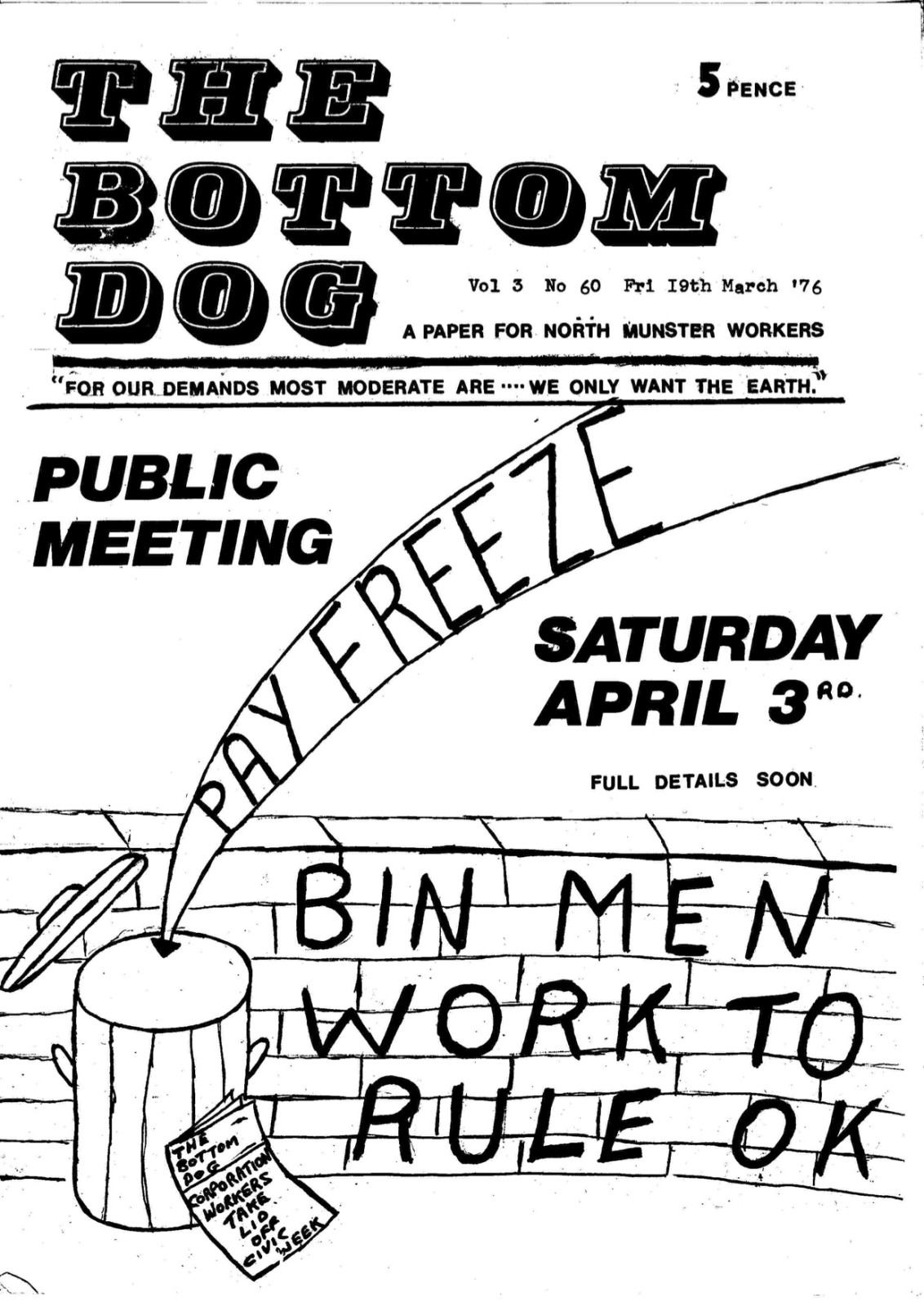#OnThisDay 31st March 1976, the Sallins Train robbery occurred.
Three members of the IRSP were charged with the robbery and convicted despite evidence of torture after arrest. A significant campaign for the release of Nicky Kelly was organised. Kelly was ultimately released, and later received a presidential pardon and compensation.
Here are documents from the campaign in our collection: https://www.leftarchive.ie/subject/2674/
#OTD #IrishLeftArchive #IrishPolitics #IrishHistory #SallinsTrainRobbery #IRSP #NickyKelly
Event - Sallins Train robbery
Irish Left Archive
#OnThisDay 31st March 1966, Westminster elections were held in Northern Ireland. All seats were won by the Ulster Unionist Party, with the exception of West Belfast, where Gerry Fitt won the seat for the Republican Labour Party.
Sinn Féin newspaper, The United Irishman, reported an "Election Rout of Republicans":
"No matter how tinted the glasses through which one might look, the results of the 1966 Imperial Elections in the Six Counties show a rout of the Republicans."
https://www.leftarchive.ie/subject/6358/
#OTD #UnitedIrishman #SinnFéin #GerryFitt #RepublicanLabourParty #Elections #Westminster
Election - Westminster Election (NI), 1966
Irish Left Archive
#OnThisDay 31st March 1966, Westminster elections were held in Northern Ireland. All seats were won by the Ulster Unionist Party, with the exception of West Belfast, where Gerry Fitt won the seat for the Republican Labour Party.
Sinn Féin newspaper, The United Irishman, reported an "Election Rout of Republicans":
"No matter how tinted the glasses through which one might look, the results of the 1966 Imperial Elections in the Six Counties show a rout of the Republicans."
https://www.leftarchive.ie/subject/6358/
#OTD #UnitedIrishman #SinnFéin #GerryFitt #RepublicanLabourParty #Elections #Westminster
Election - Westminster Election (NI), 1966
Irish Left Archive
The Draft Constitution and Rules of Saor Éire: https://www.leftarchive.ie/document/6252/
Saor Éire was a short-lived left Republican and communist organisation founded by members of the IRA in 1931. Notable among its founders were Peadar O’Donnell, Frank Ryan and George Gilmore.
It brought together members of the Revolutionary Workers’ Groups (RWG), which was chiefly Dublin-based, and the Irish Working Farmers’ Congress (IWFC), which had been established by O’Donnell in 1930 and was associated with Krestintern, the Peasants International.
#IrishLeftArchive #SaorÉire #IrishWorkingFarmersCongress #RevolutionaryWorkersGroups
Saor Éire: Draft Constitution and Rules (1931) — Saor Éire [1931]
Irish Left Archive
"No eviction ban? No peace!"
Poster seen in Earl St, South Dublin
Published #OnThisDay 29th March 1974:
"Shops Stewards Committee: 'Why We Left It': B&ICO Shop Stewards"
"Revivalism or Reform for the Gaeltacht?"
Comment, fortnightly paper of the British and Irish Communist Organisation (BICO).
https://www.leftarchive.ie/document/2322/
#OTD #IrishLeftArchive #BICO #Comment #BritishAndIrishCommunistOrganisation #Gaeltacht
Comment, Vol. 3, No. 4 (1974) — British and Irish Communist Organisation
Irish Left Archive
#OnThisDay 29th March 1975, The Non-Stop Connolly Show, a 24-hour play dramatising the life of James Connolly by Margaretta D’Arcy and John Arden, was first performed on Saturday 29th March 1975. The play was in part supported by Official Sinn Féin.
https://www.leftarchive.ie/on-this-day/03/29/#event-5522
#OTD #IrishLeftArchive #OfficialSinnFéin #MargarettaDArcy #JohnArden
On This Day, 29th March
Irish Left Archive
Sharing Responsibility, from the Progressive Unionist Party (PUP), 1985.
The Progressive Unionist Party is the only Socialist Unionist Party in N. Ireland. It is a party committed to restoring consensus politics to this region.
Sharing Responsibility (1985) — Progressive Unionist Party
Irish Left Archive
Published #OnThisDay 28th March 1991:
An Phoblacht, newspaper of Sinn Féin, on the 75th anniversary of the 1916 Easter Rising.
An Phoblacht/Republican News, Vol. 13, No. 13 (1991) — Sinn Féin
Irish Left Archive
Published #OnThisDay 27th March 1981:
"Eviction Over £1 Arrears"
"NATO's Target – Ireland"
The Irish People, Vol. 9, No. 13, newspaper of Sinn Féin The Workers' Party.
https://www.leftarchive.ie/document/574/
#IrishLeftArchive #OTD #Housing #Eviction #NATO #TheIrishPeople #SinnFéínTheWorkersParty #WorkersParty
The Irish People, Vol. 9, No. 13 (1981) — Sinn Féin The Workers' Party
Irish Left Archive
New document:
"Do We Need A Political Revolution?"
Poster for a public rally in 2015 from the Anti-Austerity Alliance.
https://www.leftarchive.ie/document/6362/
#IrishLeftArchive #AntiAusterityAlliance #SocialistParty #Solidarity #IrishPolitics
Do We Need A Political Revolution? (2015) — Anti-Austerity Alliance
Irish Left Archive
"Prepare To Sink The Service Charges"
Workers Solidarity, no. 42, from 1994; paper of the Workers Solidarity Movement.
https://www.leftarchive.ie/document/2350/
#IrishLeftArchive #WorkersSolidarity #WorkersSolidarityMovement #WSM
Workers Solidarity, No. 42 (1994) — Workers' Solidarity Movement
Irish Left Archive
"A New Nationalism for the New Ireland"
By Desmond Fennell, 1972, and published by Comhairle Uladh (Council of Ulster).
Comhairle Uladh seeks the establishment of Dáil Uladh – A Parliament of Ulster – within a New Irish Republic restricted with strong regional governments.
In addition Comhairle Uladh – Council for Ulster – promotes cooperation with the Civil Disobedience Campaign in the North, endeavours to co-ordinate the relief of distress and suffering in that area and works for the release of all political prisoners.
A New Nationalism for the New Ireland (1972) — Comhairle Uladh
Irish Left Archive
Published #OnThisDay, 22nd March 1974:
"Step Back to 1921 and Civil War?"
An Phoblacht, newspaper of Sinn Féin.
https://www.leftarchive.ie/document/2284/
#IrishLeftArchive #IrishPolitics #IrishHistory #AnPhoblacht #SinnFéin
An Phoblacht, Vol. 4, No. 12 (1974) — Sinn Féin
Irish Left Archive
For Unity and Socialism: Manifesto of the Communist Party of Ireland
https://www.leftarchive.ie/document/2115/
#IrishLeftArchive #CommunistPartyOfIreland #Communism #Socialism
For Unity and Socialism (1970) — Communist Party of Ireland
Irish Left Archive
"If General Elections could really change anything, they'd make them illegal".
Gralton, a left magazine which ran for ten issues in 1982 and '83, named after Irish socialist, James Gralton.
Gralton, No. 5 (1983)
Irish Left Archive
New documents:
Some political ephemera from Éirígí.
First, voting cards from the 2022 Ard Fheis.
Ard Fheis Voting Card (2022) — Éirígí
Irish Left Archive
Published #OTD 19th March 1976:
The Bottom Dog, Vol. 3, No. 60
The Bottom Dog, "the working class paper of North Munster", was published in the 1970s in Limerick and took its name from a paper published in 1917/18.
The Bottom Dog, Vol. 3, No. 60 (1976)
Irish Left Archive
#ICYMI in our March episode of the Irish Left Archive Podcast (@ILAPodcast@podcast.leftarchive.ie) we spoke to two members of the Irish Anarchist Network about organising the newly-formed group, practical activism and direct action, and the contemporary political landscape in Ireland.
https://podcast.leftarchive.ie/@ILAPodcast/episodes/irish-anarchist-network
#IrishPolitics #Anarchism #IrishAnarchistNetwork #Activism #DirectAction #IrishPodcasts #Podcast
